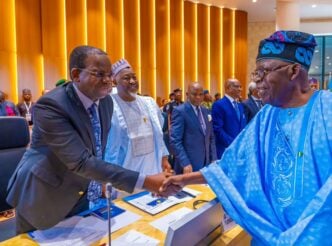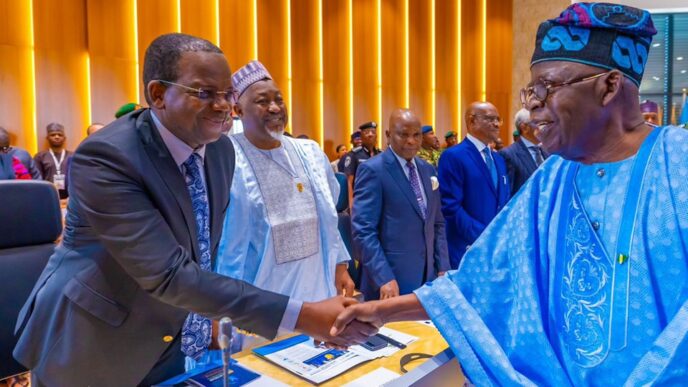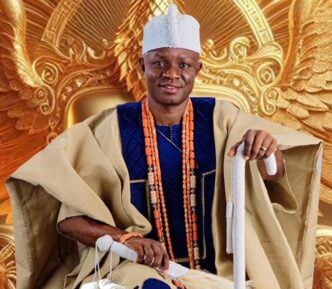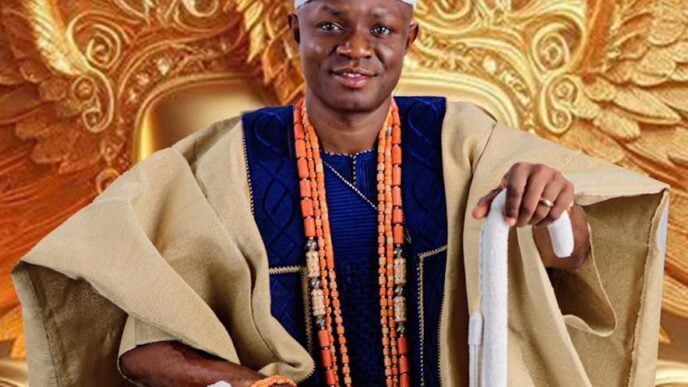BY TOBI YUSUF
Anytime I hear or read about the fluidity with which people get into and dash out of marriage, I wonder where they ever got the idea that marriage was a bed of roses. Like everything in life, marriage is a roller-coaster of experiences, which is why anyone interested in the institution must attain a level of psychological and emotional maturity that can sustain them in the turbulence that they are most certainly going to experience.
Even the holy book says that he who must marry would have troubles, and in my few years of marriage, and from conversations with family and friends, every marriage has their peculiar challenges and most of the time, what we need are the requite skills to deal with issues as they emerge as well as a constant assessment of the relationship and the readiness to make amend and nurture the marriage. It is a transition that I have been through and can speak to competently. Let me share a bit of my experience with you.
It was love at first sight between me and my husband. We met at a birthday party of his friend that I gate-crashed with my flatmates during our university days. Nine months later, he proposed, and the young, naïve me had no clue why I wanted to get married, but I knew I wanted to spend the rest of my life with this man. I loved the idea of “I’m getting married.” After all, my parents had been married for many years and were still together. I believed that once you graduate, you’re supposed to get married. That was my understanding then. However, over the years, that love at first sight, those moments of laughter and good conversation, turned into moments of tears, no communication, resentment, and thoughts of “Why did I get married? Did I marry too early? Should I have waited a bit?” So, how did we get there? How did we move from that place of unquestioning love and passion into a place of near hatred for one another. With hindsight, our relations travelled the following trajectory.
Advertisement
The Honeymoon Phase
We got married with dreams in our eyes, believing that we were made for each other and that nothing could shake or break us. Our first year together – the honeymoon phase – was supposed to be where we enjoyed fresh love, believing that our love could conquer anything. However, this wasn’t a sweet honeymoon phase for us. We argued a lot over silly things like, “Why didn’t you tell me you were going out after work?”
The First Cracks
Advertisement
As time went on, the initial bliss started to fade. We had our first child! What a beautiful moment; our family was growing! They say the birth of a child brings connection, but for us, we were drifting apart. I was focused on the baby, my emotions (I wasn’t very happy with my body; breastfeeding was painful; first-time mum confusion). He did his thing; I did mine. We were both happy for the birth of our first child, and we did things together for our child but not for us.
The Shift in Dynamics
One of the major turning points in our relationship was the shift in our roles and responsibilities. We had our second child, and gradually, I found myself shouldering more of the role of a mother and a wife. My husband, who once was so supportive, started to take my efforts for granted. His lack of appreciation and involvement made me feel undervalued and alone. During this period, I had to learn to create my own happiness and not rely on him; I had to give myself some self-love.
Communication Breakdown (Resentment Year)
Advertisement
Effective communication is the cornerstone of any healthy relationship. Unfortunately, our ability to communicate deteriorated over time. Conversations turned into arguments, and silence became our default mode of interaction. The emotional connection we once had was replaced by a growing distance. Every attempt to address our issues seemed to fall on deaf ears, further deepening my resentment. I would often look at him and ask myself, “Why did I get married?”
Emotional Disconnect
One of the most painful aspects of our journey was the emotional disconnect that developed between us. The intimacy and affection that once defined our relationship were replaced by a cold and distant coexistence. I longed for the emotional support and companionship we once had, but it felt like we were living in separate worlds. The person who was once my closest ally had become a stranger.
Moving Forward
Advertisement
Acknowledging the resentment I felt towards my husband has been a painful but necessary step. I realised that for my own well-being, I needed to act. Whether it’s seeking counselling or having a candid conversation about our future, it’s crucial to prioritise my own happiness and mental health.
This whole marriage journey has been a learning experience. It has taught me the importance of clear communication, mutual respect, and emotional support in a relationship.
Advertisement
As I move forward, I carry these lessons with me, hoping to find a path that leads to healing and happiness.
My story is a testament to the fact that relationships require continuous effort and commitment from both partners. Without this mutual dedication, even the strongest bonds can unravel, leading to resentment and sorrow. I believe that when the two people in a marriage prioritise communication and remain teachable and ready to adapt to the dynamics in their relationship, they can make it work. Marriages and the homes we create from it are central to the stability of our societies, they are a great foundation for sustainable development, and we must all do our best to contribute to building healthy families.
Advertisement
Views expressed by contributors are strictly personal and not of TheCable.
Add a comment









